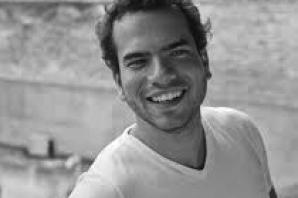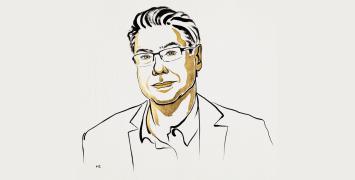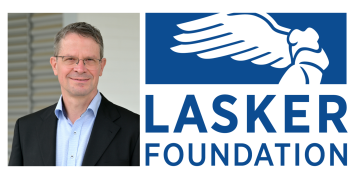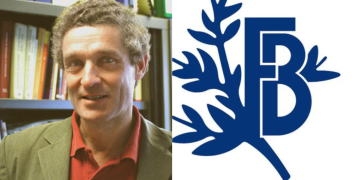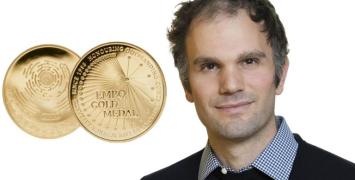Interview with Artur Avila, Fields Medal Awardee and Brazilian ERC starting grant awardee
Artur Avila is a franco-brazilian leading mathematician and an ERC grantee since 2010. At the age of 16, he won the International Mathematical Olympic gold medal and before finishing high school, he received a scholarship for the Instituto Nacional de Matemática Pura e Aplicada (IMPA) of Rio de Janeiro. He is now senior researcher both at the National Center for Scientific Research - CNRS and IMPA. In this interview, Prof. Avila tells us about his international career and the research he conducts both in Brazil and France.

Interview conducted by EURAXESS Links Brazil
Tell us more about your career and your mobility as a researcher.
I obtained my PhD at the age of 21 at the Institute for Pure and Applied Mathematics (IMPA) in Rio de Janeiro, before arriving in France in 2001, where I completed a two year post-doctoral degree at the College de France. In 2003, after two unsuccessful attempts, I qualified for the competition held by the National Centre for Scientific Research (CNRS) - open to foreign researchers - where I now hold a permanent position. After spending three years in Paris, I received a grant from the Clay Mathematics Institute, which allowed me to spend three years in Brazil. In 2008, I was promoted director of research at CNRS.
In 2009, I began to split my time between France and Brazil. My mobility has been facilitated by the fact that since 2006, IMPA has been part of the CNRS as an international joint research unit. When I am at IMPA in Brazil, somehow I'm also at the CNRS, although I officially still remain director of research at the Jussieu-Pairs Institute of Mathematics Rive Gauche (IMJ-PRG). Furthermore, I usually work on several projects simultaneously, some with partners in France, others in Brazil or elsewhere, and I can therefore easily switch from one project to the other.
How did your ERC grant influence your research career?
I have been awarded with an ERC Starting grant for a period of five years for my research project "Quasiperiodic", covering several classes of dynamical systems which display a quasiperiodic component, while the second class consists of translation flows on higher genus surfaces.
In mathematics, you do not need much equipment, and a good part of the grant can be directed towards funding mobility, be it for hiring post docs (regardless of their nationality or origin), or to participate in congresses and meeting partners.
In the past years, our research has sometimes taken an unexpected turn, as it has been influenced by the findings of the researchers who were recruited on the project. For example, a few years ago, I tried to solve the problems of low combination of billiards in regular polygons several times without success. Thanks to the ERC funding, we were able to recruit a post- doc who examined this problem and solved it. Also, without the ERC fund, I would not have been able to explore some of the themes we worked on. Finally, the ERC grant allowed me to benefit from better working conditions and to continue my research in France more efficiently and comfortably, by surrounding myself with competent researchers with whom we made major progress on several questions.
In your opinion, how important is the mobility of international researchers between these two regions?
The advantage of mobility is obvious to me. Scientific exchanges between Brazil and France are numerous and beneficial for both countries but also for mathematics. In this particular field, cooperation between the two countries is longstanding. Many young and excellent French researchers have carried out research at IMPA in the 80s as part of their French military service, including renowned researcher Jean -Christophe Yoccoz. He won the Fields Medal in '94 and completed his PhD at IMPA. In the long term, I am convinced that Brazil will become more and more attractive. The university system will develop and grow, and so will the recruitment needs. The potential for growth is larger than the one for developed countries.
For France, the presence of foreign researchers is also advantageous. There are numerous foreign researchers here and we are always ready to welcome more. Today, Brazil sends researchers abroad, but it should not be afraid of losing them. Once the researchers return, they will bring back a different type of knowledge and will contribute to the scientific development of the country. As for those who decided not to return, they will always be a reference for those who aim to follow their path. I also mention this to French researchers, and encourage young researchers to spend a few years in Brazil at the beginning of their careers. We should not be afraid of brain drain.
What are the main aspects of each of these countries’ research landscape?
It is important to me that conditions are favourable for mathematical research in both countries, avoid that the researchers' careers deteriorate, not to put off talents. Some of these brilliant minds could indeed be discouraged by increased competition, difficult financial conditions and a lack of social recognition for researchers. As a consequence, they may turn away from this path. We must ensure that this does not happen. We must also think of a more egalitarian research system, not only conducive to internationally recognised researchers. Ideas are universal and research is based on the work of many people, including also those who will unfortunately never be distinguished.
Can you share any tips with on how to apply successfully for an ERC grant?
I am not well placed to give advice because the rules were a little different when I got my grant. But I would like to advise potential applicants that, unlike me, they should not wait to be an internationally recognised researcher to apply, especially for starting grants. The important thing is to have a good science project, detailed and consistent, and good colleagues.
Read Artur Avila's full interview here: English version - Portuguese version

